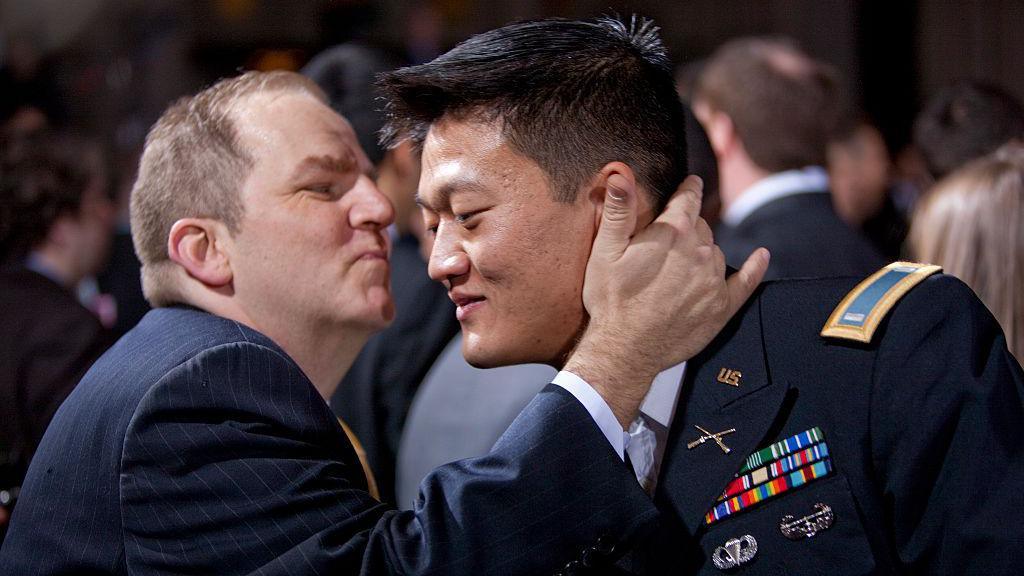More than 800 US veterans given honourable discharges after 'Don't Ask, Don't Tell' review

Openly queer Americans were not allowed to serve in the US military for nearly two decades
- Published
The Pentagon has announced that more than 800 veterans who were thrown out of the US military over their sexual orientation will receive honourable discharges.
Under a policy known as "Don't Ask, Don't Tell" that was in effect from 1994 to 2011, thousands of openly gay, lesbian and bisexual service members were separated from the military.
Many were given less-than-honourable discharges, which blocked them from receiving veteran benefits such as healthcare, student loans and tuition assistance.
A little more than a year ago, Defence Secretary Lloyd Austin had the military begin reviewing veterans' records to possibly upgrade discharge statuses.
In a statement on Tuesday, he paid tribute to "the service and the sacrifice of all our troops - including the brave Americans who raised their hands to serve but were turned away because of whom they love".
With the upgrades from the review, nearly all of the 13,500 individuals who were let go under Don't Ask, Don't Tell, now have an honourable discharge, he said.
Those veterans will see their discharge papers automatically updated and will be eligible to request copies of their upgraded discharge certification.
Those who believe they have been erroneously or unjustly left out of Tuesday's decision may also request a correction to their military records, the Pentagon told CBS News, the BBC's US partner.
The US has relatively recently changed its stance on gay and bisexual people serving in the armed forces.
In June, President Joe Biden issued pardons to thousands of service members who had been convicted of a crime under military law based on their sexual orientation.